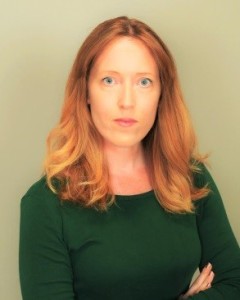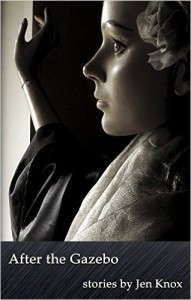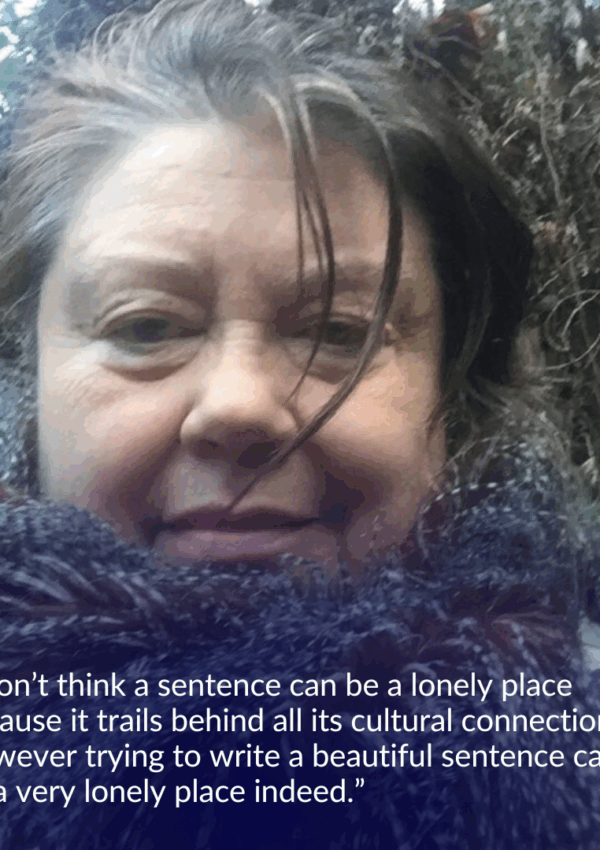An interview by Alicia Cole.
 Jen Knox is a writing coach and the Writers in Communities program director at Gemini Ink. Her short fiction and nonfiction appear in over seventy publications, including The Adirondack Review, the inaugural issue of Black Fox Literary Magazine, Chicago Tribune, Istanbul Review, Midway Journal, Narrative Magazine, Room Magazine and The Saturday Evening Post. Connect with Jen here: www.jenknox.com
Jen Knox is a writing coach and the Writers in Communities program director at Gemini Ink. Her short fiction and nonfiction appear in over seventy publications, including The Adirondack Review, the inaugural issue of Black Fox Literary Magazine, Chicago Tribune, Istanbul Review, Midway Journal, Narrative Magazine, Room Magazine and The Saturday Evening Post. Connect with Jen here: www.jenknox.com
Black Fox Literary Magazine: Were you always determined to be a writer?
Jen Knox: I was always a reader and a highly imaginative kid, but I didn’t write much until I was an adult. I think what hooked me in college was the realization that writing could be as immersive as reading. When a writer achieves flow, so to speak, the story demands new perspective; it becomes an adventure. In this way, writing can be very freeing.
BFLM: Where does your inspiration come from?
JK: Curiosity about the world. On a good day, I am more intrigued by what goes on around me than I am able to understand it. The world is an inexhaustibly fascinating place; there are endless ideas and stories to delve into. Anytime I’m paying close enough attention, I end up inspired.
BFLM: How did After the Gazebo develop?
 JK: One story at a time. I find that themes tend to form around my work over time, but I never force them. For a few years, I was writing a lot of shorter works about characters who are searching for connection or reconnection with family. Many of these stories were about individuals faced with tough and pivotal decisions. These stories came together to form After the Gazebo.
JK: One story at a time. I find that themes tend to form around my work over time, but I never force them. For a few years, I was writing a lot of shorter works about characters who are searching for connection or reconnection with family. Many of these stories were about individuals faced with tough and pivotal decisions. These stories came together to form After the Gazebo.
The last few years, I’ve found myself returning, again and again, to natural disasters–how people and nature co-exist and are one in the same. I wonder what will come next, though I’m sure I won’t know until I’ve been writing about it a few years.
BFLM: What is writing like before and after critical success?
JK: Positive feedback is lovely when genuine. Reading or hearing a good review is a tingle in the belly. The knowledge that I have truly engaged readers in our fast-paced world, slowing them down enough to take a break, take a journey, to lose themselves in story, is a phenomenal feat.
But reviews, in my opinion, are more beneficial to those who write them. It’s important to understand what you’ve consumed and to reflect on it, on why it did or did not work for you. My goal as a fiction writer is to get my readers to see the world in a new way, through new eyes, if only for a time. If I succeed, I’m thrilled. If not, well, back to the present and whatever task is next. Back to curiosity and exploration.
BFLM: What themes, if any, fascinate you?
JK: I’m fascinated by the ways technology is changing the way we live, and what said changes will mean in the foreseeable future. Will a person be able to participate in our society without being “connected” constantly? Will “smart” homes lead us to further innovations or to stagnation?
BFLM: What enchants you about tougher subject matter?
JK: Tough things happen in real life, and they absolutely have to happen in fiction. If we don’t put our characters through tough times, they won’t feel real. I like the way Kurt Vonnegut says it in Bagombo Snuff Box, “Be a Sadist. No matter how sweet and innocent your leading characters, make awful things happen to them-in order that the reader may see what they are made of.”
If we ignore the tough stuff on the page, we are doing ourselves a disservice as artists. The tough subjects do turn some away, but those with a natural capacity for empathy want to further understand difficulty in order to examine it. Stories are a powerful mode of communication, and communication breaks silence (silence is where the tough stuff thrives).
BFLM: What are you currently working on?
JK: I recently completed a collection of eco-fiction, and I am working on a novel-in-stories that I don’t want to say too much about yet.
BFLM: What is easy about your life as a writer? What is difficult? In short, tell us a bit more about your process, its ups and downs.
JK: Writing is easy when it’s flowing. Not all days are conducive to flow. I tend to take a short warm-up to get in my writing rhythm, and once I’m there, I forget the world and find myself as immersed in story as I would be if I were reading. Other days are tough. I keep wanting to find an excuse to go refill my coffee or walk the dog or call a friend. So I do. Discipline is necessary, but force negates.
BFLM: What three books can you not live without?
JK: Flowers for Algernon is the first book that truly made me look at the world in a new way. I haven’t read it in many years, but it sits on my bookshelf waiting. I’m a little nervous about returning to it, but I wouldn’t give it up. Rabbit at Rest by John Updike is a phenomenal novel, the last in the Rabbit Angstrom series. It tackles the impossible subjects of death and life in a way that truly moved me. Another book I found to be incredible was Middlesex. I return to Jeffrey Eugenides work regularly. His capacity for empathy and complex, immersive storytelling is stunning. Finally, Toni Morrison’s Sula (is that four?) is a book that accomplishes everything a book should.



